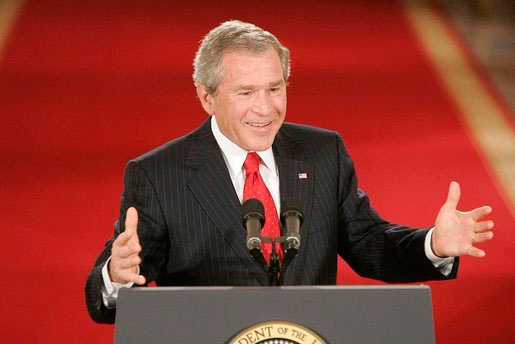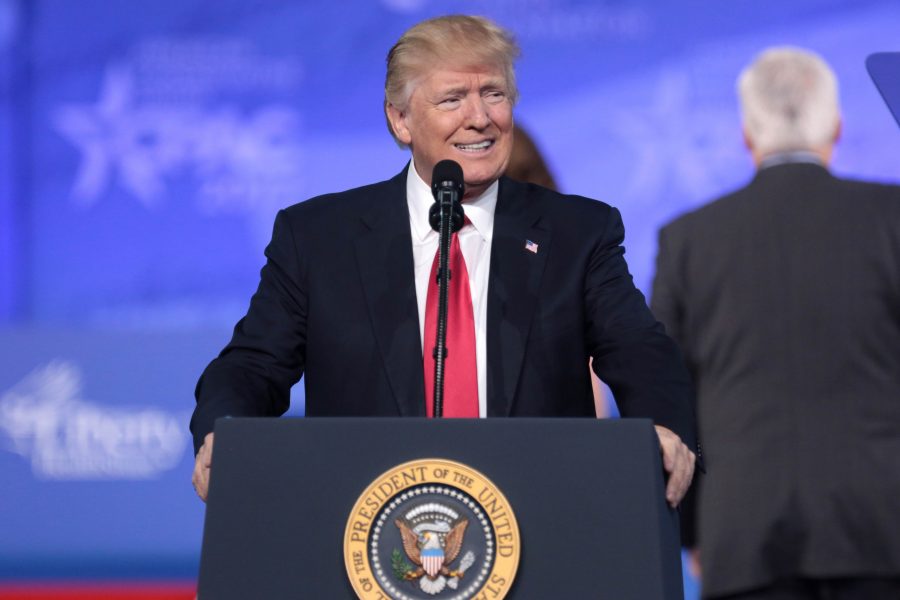Editorial
In a climate clouded by ‘alternative facts,’ a free press is even more crucial
March 15, 2017
President Donald J. Trump recently passed the 50-day mark since his inauguration, and to say that he’s off to a rocky start with the news media is an understatement.
He has already had several outbursts on Twitter in which he has called out the press for unfair reporting.
On March 13, President Trump tweeted “It is amazing how rude much of the media is to my very hard working representatives. Be nice, you will do much better!”
Are journalists really being “rude,” or are they doing their civic duty to report the truth and condemn the “alternative facts?”
This all comes as the Trump Administration is in the midst of turmoil over reports that several members of his staff lied about communication with Russian government officials.
Earlier this month, reports came out that Attorney General Jeff Sessions had communicated with Russian officials after claiming during his confirmation hearings that he did not have contact with Russia. Following these reports, Sessions recused himself from any Justice Department investigations into President Trump and his campaign’s ties to Russia.
After Sessions’ recusal, news cameras caught a scene of a heated meeting between President Trump and members of his cabinet in the Oval Office. Reports came out that there was considerable infighting within the Trump Administration.
In the wake of this report, Trump tweeted on March 7 “Don’t let the FAKE NEWS tell you that there is big infighting in the Trump Admin. We are getting along great, and getting major things done!”
While it is hard to say for sure what the tension within the Oval Office was about, video footage tends to be fairly conclusive.
Aside from the Russia situation, President Trump also accused former President Barack Obama of “wiretapping” Trump Tower in the weeks leading up to Election Day.
On March 4, President Trump posted a series of tweets regarding this matter.
The first one read, “Terrible! Just found out that Obama had my ‘wires tapped’ in Trump Tower just before the victory. Nothing found. This is McCarthyism!”
Next he posted, “Is it legal for a sitting President to be ‘wire tapping’ a race for president prior to an election? Turned down by court earlier. A NEW LOW!”
Then he later tweeted, “How low has President Obama gone to tapp my phones during the very sacred election process. This is Nixon/Watergate. Bad (or sick) guy!”
In the days and weeks following these reports, the Trump Administration has yet to provide any concrete evidence to prove that President Obama ordered a wiretapping on Trump Tower.
Many members of the press have pushed for Trump to provide evidence of these claims.
ABC News Chief White House Correspondent Jonathan Karl repeatedly questioned President Trump on March 10 if there was any evidence to back up these claims, and the president completely ignored the questions.
Trump’s handling of the Russia situation, and his claims that he was wiretapped by President Obama are prime examples of why the news media is an essential component of a properly functioning democracy.

Former President George W. Bush.
This is a sentiment that former President George W. Bush echoed recently in an interview on NBC with Today host Matt Lauer. Lauer questioned President Bush about whether or not he believed Trump’s claims that the media was “an enemy of the American people.”
“I consider the media to be indispensable to democracy, that we need an independent media to hold people like me to account. I mean, power can be addictive, and it can be corrosive, and it’s important for the media to call to account people who abuse their power, whether it be here or elsewhere.” Bush said.
Bush went on to say “one of the things I spent a lot of time doing was trying to convince a person like Vladimir Putin, for example, to accept the notion of and independent press.”
The former president added “it’s kind of hard to tell others to have an independent free press when we’re not willing to have one ourselves.”
President Trump’s accusations that the media is an “enemy of the American people” is perhaps the most poisonous and damaging claim he has made since being elected.
One of the key differences between a democracy and a dictatorship is the freedom of the press, which is a right protected by the First Amendment of the Constitution. It cannot be understated that now, perhaps more than ever, it is crucial that the media holds President Trump and his administration accountable for their actions, unsupported claims and “alternative facts.”



